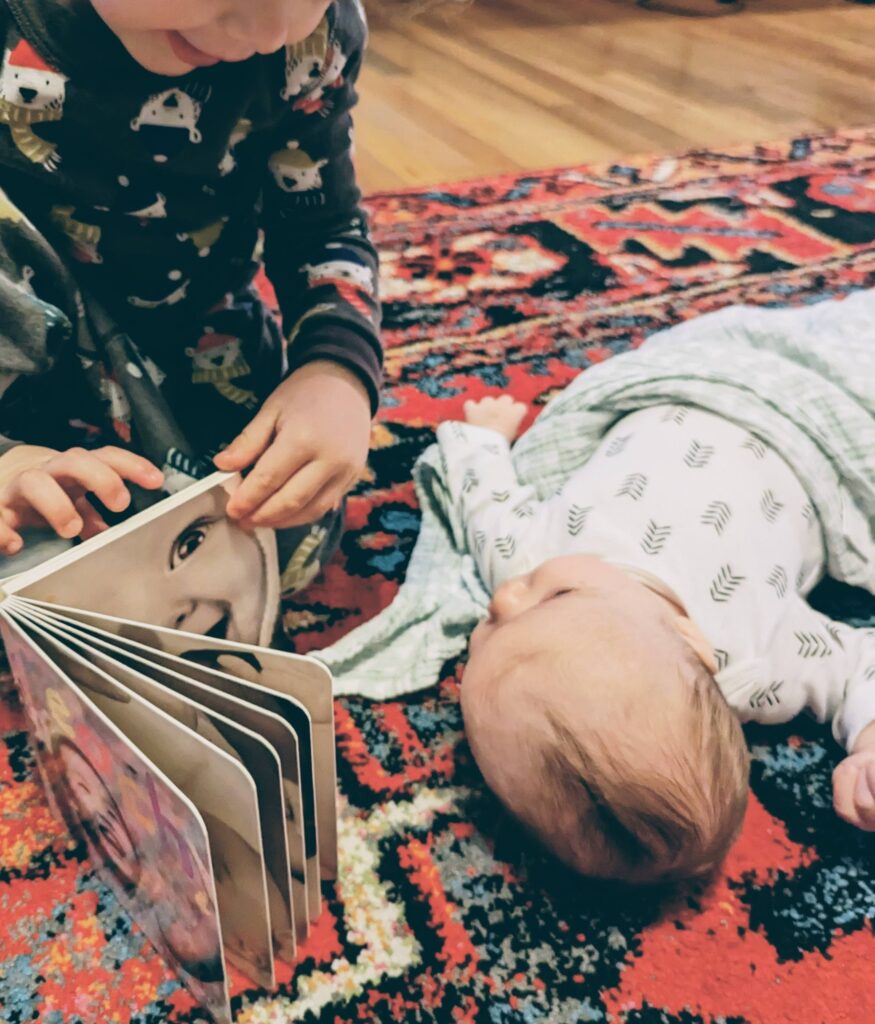Introduction to Social-Emotional Learning
The journey of parenting is rich with opportunities to mold and shape the future of our little ones. Among these opportunities, promoting social-emotional learning in infants stands out as a foundational element in the development of emotionally intelligent and empathetic individuals. This article explores the multifaceted journey that begins with the simplest acts of love and attention, and how, through responsive caregiving, engaging bonding activities, and consistent emotional support, parents can lay a strong emotional foundation for their infants.

Responsive Caregiving: The First Step in SEL
Responsive caregiving involves tuning into your baby’s cues and responding to them promptly and sensitively. Whether your infant is crying, cooing, or reaching out, acknowledging and addressing these signals is foundational. It fosters a sense of security and nurturance, essential for building trust and emotional regulation.
Engaging Bonding Activities for Emotional Growth
Bonding activities are not just moments of joy; they are building blocks for a strong emotional foundation. Cuddling, making eye contact, and engaging in conversations or singing to your baby strengthen your emotional connection. These interactions are pivotal for emotional and language development.
Consistent Emotional Support: The Key to Empathy
Teaching your infant to understand and regulate their emotions starts with emotion coaching. This involves validating your baby’s feelings, acknowledging their emotions, and labeling them in ways they can gradually understand. Such practices equip infants with the early tools for emotional intelligence..
Modeling Emotions: A Mirror for Infant Learning
Infants learn about the world of emotions largely through imitation. Displaying positive emotions and healthy coping mechanisms for negative ones serves as a live tutorial for your baby. Your emotional expressions and reactions are powerful lessons in themselves.
Creating a Stimulating and Safe Environment
A stimulating and safe environment is crucial for your infant’s exploration and learning. Age-appropriate toys and activities that cater to sensory exploration and curiosity not only support motor development but also contribute to emotional and cognitive growth.
The Role of Routines in Emotional Stability
Establishing predictable routines around feeding, sleeping, and playtime offers infants a sense of security and stability. These routines are comforting, reduce anxiety, and support emotional regulation, laying a foundation for healthy emotional development. Routines do not have to be rigid or complex. The key is consistency. This is as simple as reading a book before bed or singing a song.
Encouraging Social Interaction Early On
Social interactions, whether through playdates or parent-child classes, are invaluable. They introduce infants to concepts of sharing, turn-taking, and basic communication, fostering early social skills and emotional understanding.

The Joy of Reading Together
Reading to your infant is about more than bonding and language development; it’s an early introduction to empathy, stories, and the wider world of emotions and experiences. Books with simple, colorful illustrations and engaging textures or sounds can captivate and soothe infants.
Practicing Empathy: Responding to Your Baby’s Needs
Empathy towards your infant’s experiences and needs is crucial. Showing warmth, understanding, and responsiveness when your baby is upset offers comfort and reassurance, reinforcing a secure emotional bond.
Self-Care: The Foundation of Effective Parenting
Lastly, taking care of your own physical and emotional well-being is essential. A well-cared-for caregiver is more present, responsive, and emotionally available for their infant, completing the circle of nurturing social-emotional learning.
By integrating these strategies into daily life, moms can significantly influence their infant’s social-emotional development, laying the groundwork for a lifetime of healthy emotional and interpersonal relationships.
Conclusion
Promoting social-emotional learning in infants is a multifaceted journey that begins with the simplest acts of love and attention. Through responsive caregiving, engaging bonding activities, and consistent emotional support, moms can pave the way for their infants to grow into emotionally intelligent and empathetic individuals. Remember, the foundation you lay today will shape your child’s emotional landscape for years to come.
I’d love to hear the ways you incorporate these practices with your kids. Please comment and share!